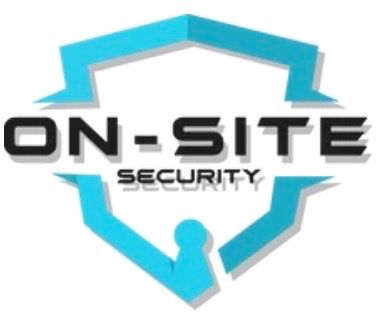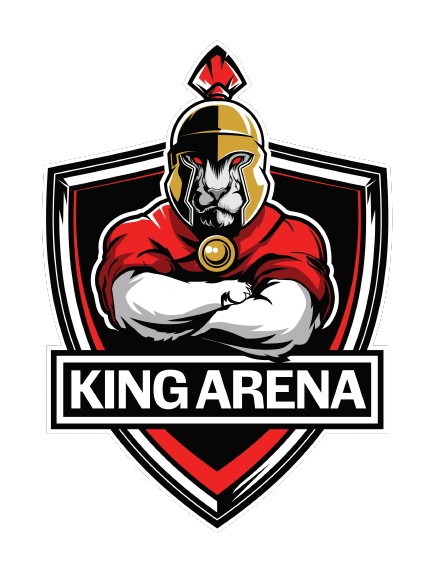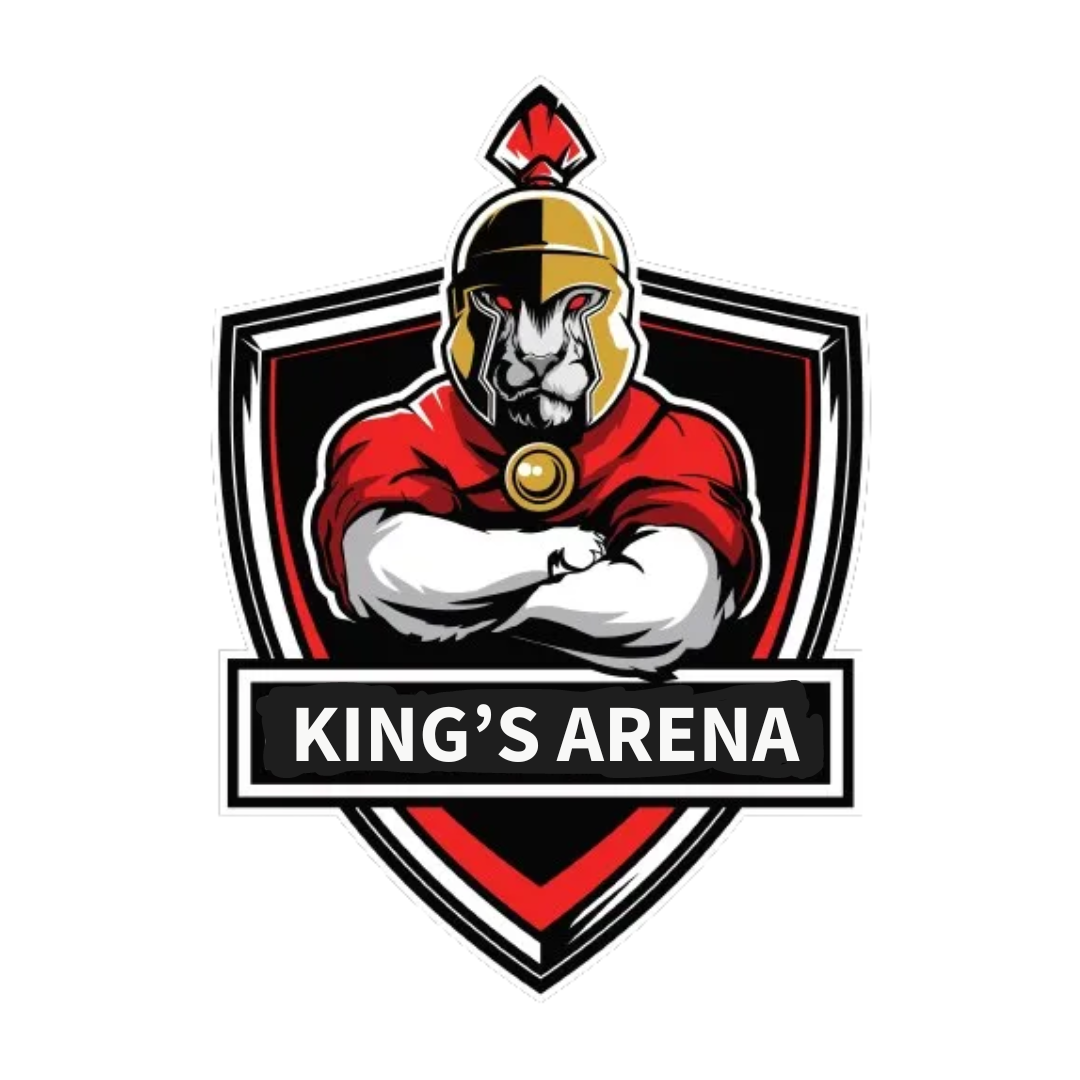On-Site Security

Transcript
Tim : Hello everybody and welcome to Surviving the Pride. I am your host.
Tim: Tim him.
Jourdyn: And I'm Jordan, and you might be.
Tim : Asking, what is Surviving the Pride? Well Jordan, I would tell you Surviving the Pride is all about marketing. Explaining all aspects of marketing to help a business grow, importance of having a website, SEO, social media. And we're also going to be talking about starting a business as well.
Jourdyn: Yeah, so in addition to that, we're also going to give you guys some helpful hints, tips and tricks about current and upcoming trends within whatever industry our guest business is from and give you guys a bit of general information. In regards to that, I just want.
Tim : To give a brief rundown on some of the segments that we have planned for him during this podcast. One of them is titled technically the Hot Seat. Usually within this segment we kind of just introduce the guests, we put them in the hot seat, asking them questions about customer experiences and how to deal with the branding that they have currently been doing with social media and if they have anything that else that they would like to describe or say about their business. And then also near the end of it, we're going to be playing a.
Tim: Little game with them.
Tim : Just called word association. Typically with that, each round entails for our guests to give us a phrase or words that first come to their mind based on our randomly generated word selection. Now with all that being said, I would like to introduce our guests that we have here today. With us today we are going to be speaking with James from Onsite Security.
James: I'm James, owner of Onsite Security, and we have a family ran security company here in New Jersey.
Tim: Nice. What made you guys decide to begin on site security?
James: I have a 20 year electronics background. I've worked for a whole bunch of different other people. And time and time again I find that my values didn't align with people that I worked with, not coworkers, but the owners, they had their own agendas and I didn't agree with it. The way they treated employees, the way they treated customers. And I decided and along with my best friend, we opened Onsite Security about four years ago.
Tim: Nice. Torres, is there anything you want to add?
Jourdyn: Yes, obviously because you saw some things that you didn't particularly like about some of your competitors. I want to say what was your mission when you initially started or like do you guys have a mission statement for your company?
James: Sure. So I don't know if I want to say a mission statement. I mean, we do. I have a great challenge coin that one of my friends who's a firefighter down in Florida had made for me from his company. And it says to provide exceptional customer service and safety to the neighborhood and our community and yeah, that sounds good and great and all. But I will say the thing that strives us to do what we do is it says it right on my hat is 212. And a lot of people ask it's on our hat. It's on my desk right here. Big letters. It's on our sweatshirts. Not this one. This is like one of our original sweatshirts, but all of our new sweatshirts say right here on the arms, 212. It actually has a lot of people asking us every time that we shake hands when we meet, what's 212? And we describe it. And that's us. A lot of people don't know what it is. 212 is the boiling point of water. And as silly as it sounds, it sounds a little corny. That the boiling water can create steam, which can power the world. As simple as that. 211 is what? Just hot water. So that one degree makes all the difference. And that's what I strive for us to be. Everybody, whether it's myself, the employees, that's what I strive to give, is that 1% difference. I say it to the guys very bluntly. Like, we're here, you're here doing the work already. Do it to the best of your ability. Why not? You're here. Don't slack out. And, oh, I don't feel like running this last wire. I'm going to make you run it anyway, but just do it. And that's us.
Tim: Nice. I never heard of someone describing, like, a mission statement as, like, something be equivalent to boiling hot water. So that's very cool.
James: Actually.
Tim: I like that a lot.
Jourdyn: I think that's like, a really cool concept, honestly. Like, that one degree hotter. That's really cool.
Tim: Yeah.
Jourdyn: Okay, let's see. I think that's the end of our first segment. Now the second.
Tim: Well, I do have a question now.
Jourdyn: Go ahead.
Tim: Just the security just, like, around neighborhoods, correct. Do you do, like, businesses or what type of security is it like?
James: We've we do camera installations. We do alarm systems primarily. We do a lot of access control. So like card swipe readers and a ton of security cameras. We do all the security work for Rutgers University. So we're their security vendor for Newark and New Brunswick and all their buildings in between. So which we do. We do their cameras, their camera systems, cabling access control systems. That's our bread and butter. But yes, we also do home residential camera systems, home automation. So we link alarm systems with camera systems and lighting and have it all work together as one.
Tim: That's pretty cool.
James: Yeah, it's fun stuff. It really is.
Jourdyn: Okay, are we ready for the next segment?
Tim: Yes.
Jourdyn: Okay. So this next segment is actually something that I've just recently come up with. It's called hashtag. Stop or secure it. So in this segment, it's basically being a yay or nay kind of concept with some words that we've generated on whether a customer should secure this item or they shouldn't. And then you can tell us why. So are you ready?
James: Sure.
Jourdyn: Okay, so first concept would be company assets.
James: Yay, absolutely. Secure it. We have a whole bunch of customers that we do their company assets, like you say, primarily builders and companies that have tools and expensive equipment that easily not stolen. I don't always want to say things stolen, but just misplaced forgotten. We have one customer that is when your basement gets flooded and they come in and they make sure all the water is gone and the smell and everything like that, and the mold and everything, they come in and fix that. They have hundreds of machines that go missing. They bring to a job site. They have a huge facility where they have to come in and they forget three or four of them, but each one is five, six, $700. Well we have tags that we put on their machines that they can GPS locate. They pay a monthly subscription fee to be able to locate them, track them, manage them, and they reduce their loss.
Jourdyn: Okay, he said yay. So let's see. The next word or concept would be lighting inside your home. So any lighting fixtures or anything that's controlled by a home access panel, I would say nay.
James: You don't need to secure it. But we can control it. We can integrate it all together.
Tim: Electronically. You control it through your phone or like an app or something? Or is it something totally different like something like that?
James: Absolutely. I'm going to actually open it up right now. We can control it all simply from your phone, from a tablet, from the light fixture. We can dim lights, turn them on and off. We have them all integrated together. I have a button in here that I could turn my whole house off. Just one button. Whole home off. TVs, lighting, door locks are locked all by one button.
Tim: Dang, that's pretty cool.
James: Sounds like Google Forms.
Jourdyn: Excuse me, are there any specific systems like certain companies that you guys prefer or advise your customers to use?
James: So the company that we use is Control for, and I like them, they're an American company. You can get their product. It's not a year backlog like some of the other companies that we've also worked with as well. I'm not going to blast them out on here, but yeah, they're a company right out of North Carolina and they integrate with everybody. So whether you don't have to go with everything from them, if you have stuff from Phillips or this or that company, or Lutron Lighting, it'll integrate with everything. So you can control things through their system that you already have. You can control your TV. They don't have a TV. They don't have a control for TV. We can control your Samsung TV to turn on and off or anything that you can think of.
Jourdyn: Oh, that's a cool concept. I honestly didn't even know about that company. So that's a huge bonus. For people that are in the area.
James: Absolutely, yeah.
Jourdyn: Next concept would be home security systems. So to touch base off of the.
James: Control panels, secure it. There's no place like home. To have anybody come into your home that shouldn't be without your knowledge is just a complete invasion of privacy. I was a victim of a break in when I was a child, and I remember we walked in the house and everything was torn apart. It was a terrible feeling, and I don't want anybody to go through that feeling. And I think the first step is even before any security system or cameras, is just not to be a target. And there's very simple solutions. We give customers to not be an original target outside of all of anything that we do. So it's not like we're just after the dollar bills, like, hey, yeah, secure it. Secure it. No, we tell people lighting is very important. Keeping a well lit, clean front of your house where a criminal can't just sneak around and be able to have their way with your home while nobody's home.
Tim: Yeah, that makes sense.
Jourdyn: That does. Trying to think, I have so many words up here, and now they're all escaping my mind. Okay, last word. Computer access.
James: Oh. Secure it. Computer security is a huge market. It's a huge industry. I think this year it's $2 trillion of computer theft between stolen identity and money. They're expecting in the next five years for it to be 13.
Tim: Did you say 2 trillion?
James: Yeah. Across the world? Across the world.
Tim: Well, still that's still a lot.
James: But that's just how big of a business between just how much theft is going into, like, that's where everything goes to.
Jourdyn: That's crazy.
Tim: That's crazy.
James: But you have to think there's 7 billion people or 8 billion people, whatever it is, what's it going to be in the next five years? 10 billion people.
Tim: That's actually a good point.
James: They estimate by, what, the year 2030, there's going to be ten or 15 billion people.
Tim: Now, would your products be different from, like, securing, like, something as, like, the computer databases and the files and all.
James: That versus so yes and no. We actually work with somebody that works for the Air Force doing Internet security, so he works with us. We secure some of our clients servers and cloud platforms, and they did our cloud platform for our access control. So we do offer it basically as a subcontractor. I give his information out, and he has his own company, Ntm Technology, and they do a great job.
Tim: Oh, that's awesome.
Jourdyn: Wow. Everything is super secure.
James: Yes, we do a little bit of everything.
Tim: It's that whole 1%, you said, that's it.
James: Listen, we have a lot of customers that ask us to do things, and there's things that we don't do. Can we do it short? Every so often, we will have to cut a hole to run a wire. We don't want to, but they'll ask, do we patch it? No, I don't. I do electronics, but we have plenty of people that can come in and patch it and paint it. So I don't want to make it seem like if we don't do it, we find the expert for you.
Jourdyn: Yeah, that's smart. That's good. That way. You guys have to put some crazy review up, like, hey, that's not your wall holding my wall, and I don't want to be fixed. Everything looks crazy.
Tim: Yeah, you don't want that.
Jourdyn: Oh, alarm systems. I didn't even think to touch on that. Obviously, these are things that people typically use inside their homes. I know that they usually commercialize certain homes being secured when it comes to alarm systems, but do you have any specific take on them?
James: Oh, absolutely. You got a minute? Talk about this all day. Everybody knows there's so many alarm system companies out there, and there are so many companies that are trying to invade the alarm and security industries. You have Amazon and Google. They're the two biggest that are in their attempt to invade the space. Amazon went out, they bought Ring, they bought Blink, they bought a couple of other companies. And none of them are security companies. They're all software companies. That their point of concept, is security. Ring originally started as a doorbell, and it's great in that concept. If anybody ever looked at any of their cameras in the footage, I'm sure you guys have seen it on Facebook. Somebody posts a picture, hey, can you recognize this person? And you can't even see their face. And it's only from 10ft away. Why? Because technology is not there to run WiFi video at anything higher than a half a megapixel. So you're not going to get a clear, good footage of it, as well as they're really in the data storage game. And Google went out and bought ADT. People don't even know that. You didn't know that Google went out and bought ADT, and they're having ADT install their Google Nest product items. So if you see on ADT's commercial, we'll give you a free Nest camera. Free this, because that's exactly what they did. And there is no real company, ADT. ADT is just basically a contractor that subcontracts it out to other alarm companies like myself. We don't use them, but they've called me and asked to become a dealer of theirs. So you call ADT, you get, oh, we're going to get this, that, and the other thing. They call me and they say, you're going to go to Tim's house tomorrow and you're going to install X, Y, and Z. Here's your tshirt. Put your tshirt on. It says ADT. There you go.
Jourdyn: So what would be like a red flag of knowing if a company is basically being subleased rather than them being, like, I guess the term would be a sole proprietor?
James: Oh, it's tough. It really is tough because especially with these large companies, they have so much money in smoke and mirrors to be able to throw at people. I would say the best thing to do is I'm a small company kind of guy. Small company with a good reputation. That's who I root for, because there are so many different people that you have to fight against, like the big companies and anybody else that sells out to them. Listen, I don't blame ADT selling out to Google for $4 billion or whatever the number was. But then an instance, you have to realize that that's what you're getting. You're getting nest products now? That's all ADT installed now is all Nest products, and it's all wireless cameras and wireless this and wireless that. Well, guess what? If your wireless goes out, doesn't work. Same thing with Ring. Your WiFi goes out, your Internet goes out. If you have again, I'm going to blast them. If you have somebody like Altitude, they go out all the time. Their internet is awful. In New Jersey, if you have somebody like that, your Internet's out all the time. You have no footage, you have no cameras, you have no alarm system. Nothing works. That is not security. Something that hinges on something else to work or not work. Security is supposed to work all the time.
Jourdyn: Yeah, right, I agree. And I feel like with some companies, at least from what I'm seeing, they are more so marketing towards the technical side of everything. Like, look what this can do. Look what this can do. Look how we're working. Partnering with this company rather than giving you an actual service.
James: Correct. Everything's a gadget. Now, can I do this with it? Does it pair with this? Security is not meant to be pairing with these other things, because when you do that, in order for them to do that, they have to open their API. They have to open the forum and the sources to be able to be integrated with well, shouldn't that be proprietary? Shouldn't nobody know the key to your system? If it is, it's a toy. That's the word I use. There's a lot of toys or for your entertainment only systems. So, like, Ring isn't UI classified. You can't put it in commercial settings you're not supposed to. Why? Because it's not listed and they won't list it because they understand that it's a toy. So they're trying to protect the industry understanding that business owners will. Oh, well, it's a $90 alarm panel. Well, you get what you pay for.
Tim: I say that all the time.
James: That's where anything I see it everywhere. We take it out of a lot of places, too. We get a lot of customers from them. Oh, my cameras don't work well, I'm like, well, you got a $40 camera. What do you expect? You get what you pay for with technology.
Tim: So I do have a last question just on my end. Do you ever get your security system inspected, or is that like a thing to have them inspected?
James: Yeah, commercially it is. Commercially, it's required is to have your systems inspected annually depending where you are. Every jurisdiction is a little bit different. Some of them are semiannual, but it's primarily annually. Homeowners typically don't there's no forcing them to. And if somebody doesn't want to do something, they're not going to. And if they have to pay for something, they're really not going to. But I recommend if you get I don't want to say anything, but almost anything, it should be at least looked at maybe once a year or so. If you have a camera outside your house, or four cameras, or eight cameras, whenever it is. And here in New Jersey, we get some crazy weather. One day it's 70, the next day it's 30, and it's snowing.
Jourdyn: Snowing.
Tim: And Jordan Or is all about that. She's from New York.
James: Exactly. So you have items that are outside. They're meant to be outside, but they're still outside in the elements they're going to get and again, they're tightened and so on and so forth down, but they're still going to move a little bit. They're going to have dirt, are going to get on the lenses. The camera is not going to be as clear as the first day. If we do an automatic lock on your door. So we do a lot of electronic, like, front door, like door deadbolts that are electronic base, and they're either fingerprint to open them, or you put a pin in and it opens your front door or back door. Those should be tightened, too. It's something that you're turning, you're opening, you're pulling, and just over time, screws loosen, and they should be inspected. I really recommend it commercially because the foot traffic is immensely more than at your home, but I recommend everybody to at least think of it as no different if you called your plumber or your gardener or whoever to inspect anything.
Jourdyn: Right. Especially for commercial properties, because you have so many assets in one area.
James: Oh, correct. Yeah.
Jourdyn: All right, I think that's all of our questions. Tim, do you have anything you want to add?
Tim: No, not at the top of my head, I don't.
Jourdyn: That was all my questions I'm questioned out.
James: Sounds good.
Tim: Awesome.
James: Would you have anything for us? That's it.
Tim: Awesome. Well, it was a pleasure, James.
James: Awesome. Pleasure was all mine. Thank you, guys. Thank you.
Jourdyn: Have a great day.
Tim: You too.
Contact Us
Contact Us
We will get back to you as soon as possible.
Please try again later.


